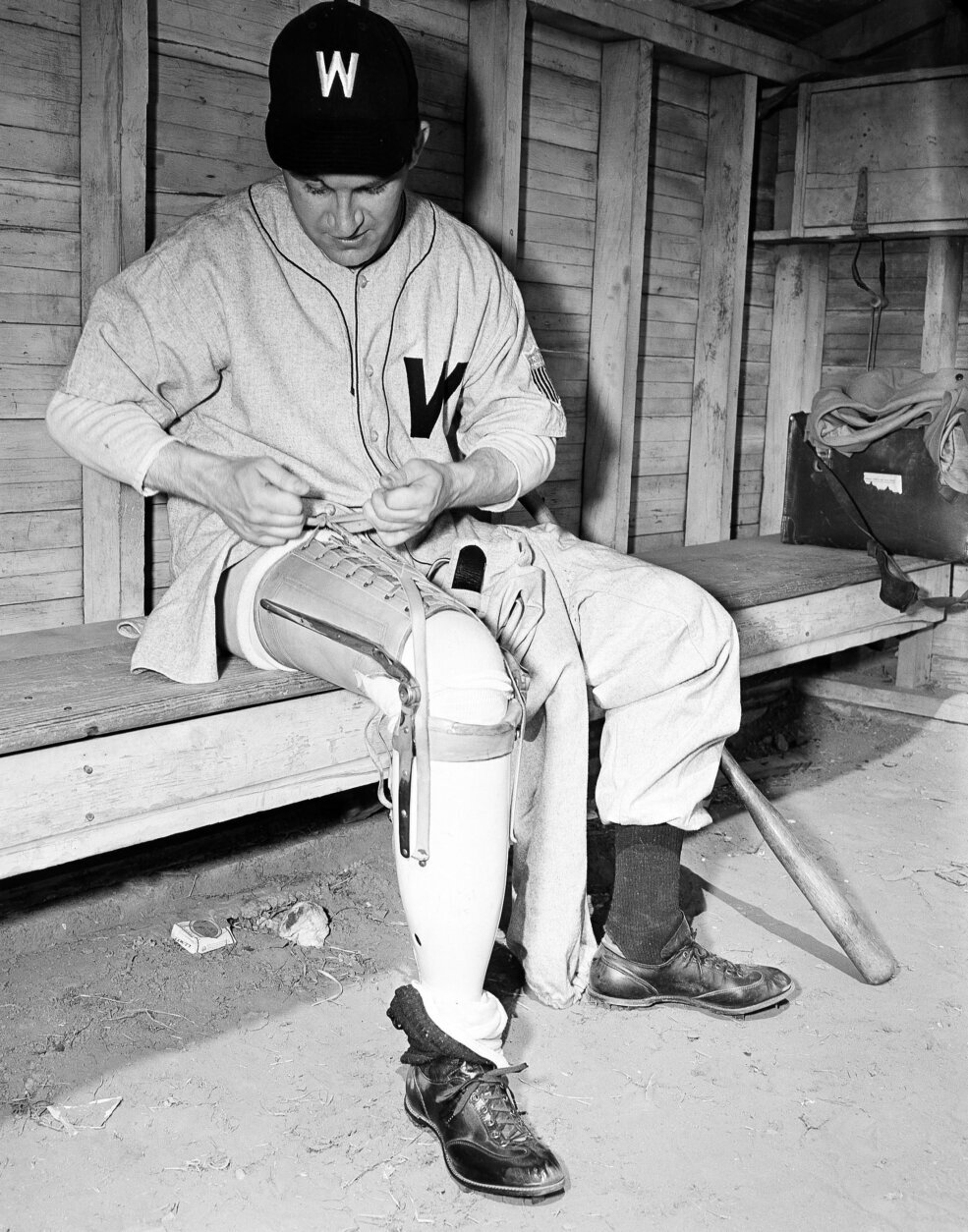
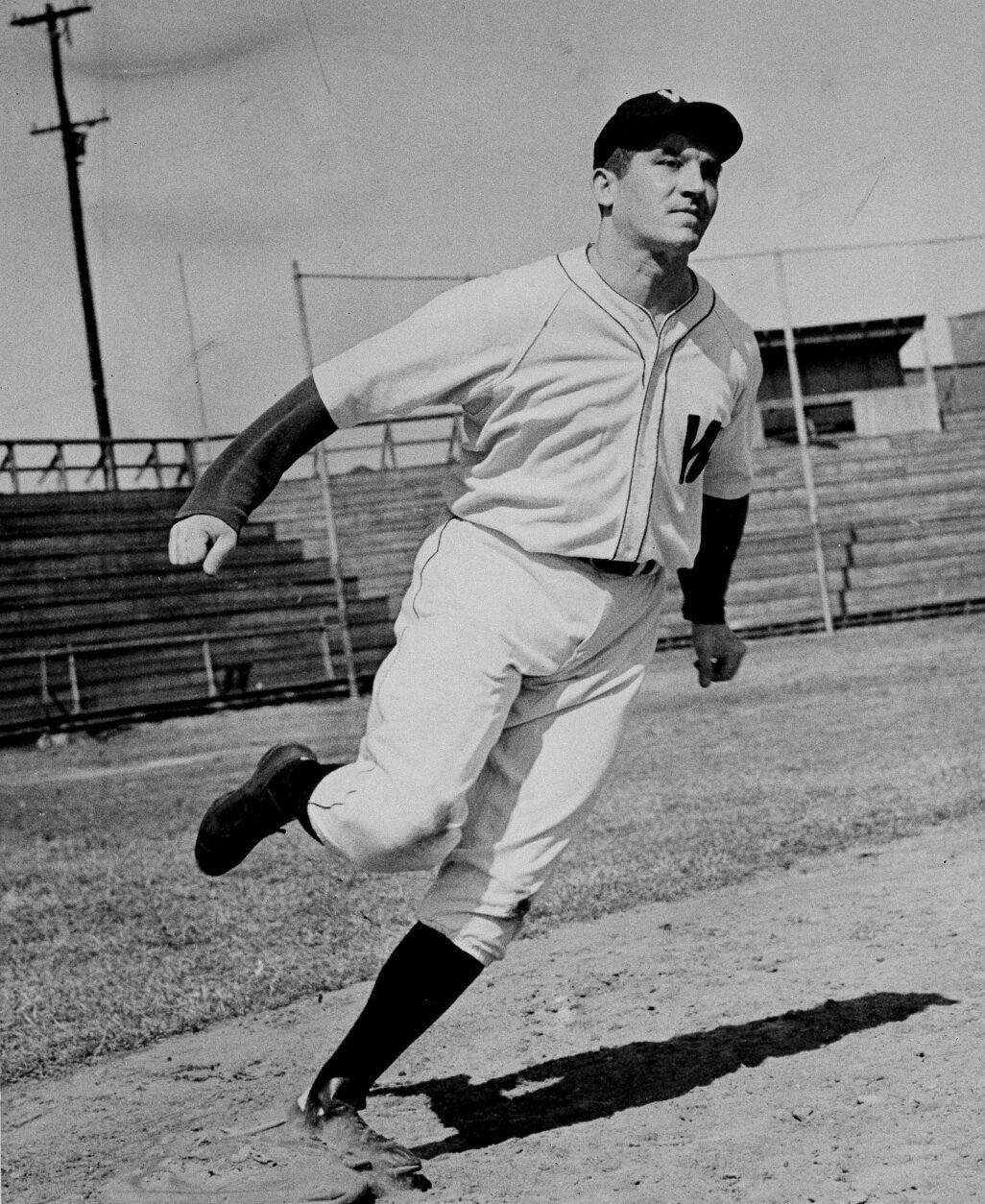
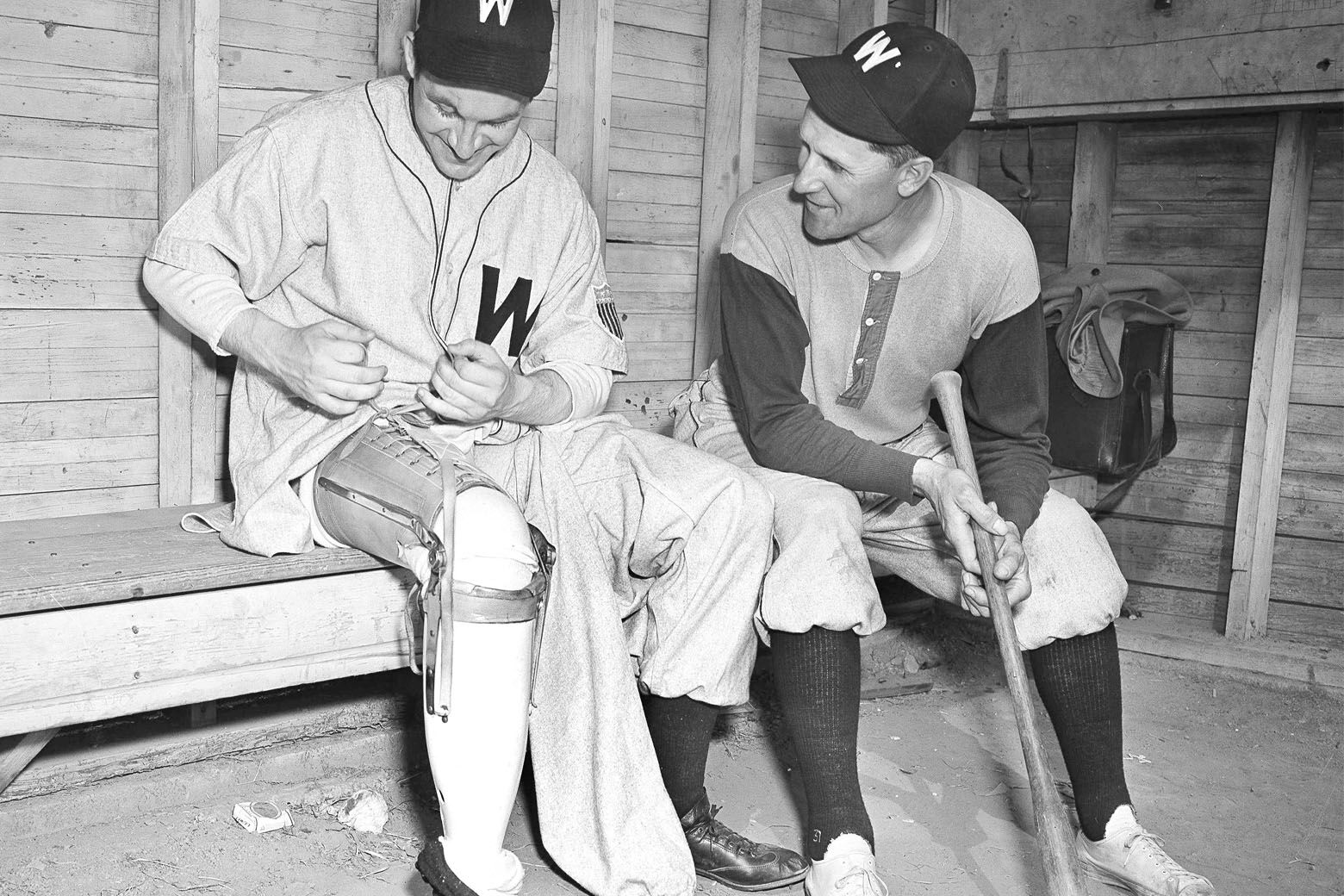
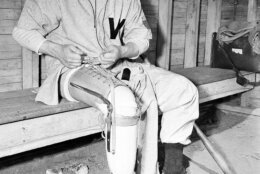
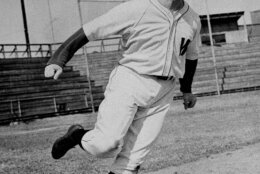
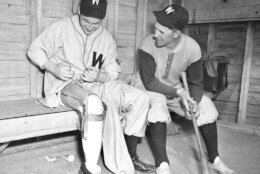
Friday marks 78 years exactly since a pitcher for the Washington Senators took the mound, beating the odds he would ever throw in a major league game.
Bert Shepard was a war hero, who lost his right leg below the knee in World War II. Despite the injury, he came back to the U.S. to fulfill his dream to be a major league pitcher.
Using a prosthetic, he took the mound for the Senators in a game in 1945.
“He ended up pitching five and a third innings. I think he only gave up one run,” said author Dennis Snelling, who wrote a book that includes Shepard’s story, “A Glimpse of Fame: Brilliant but Fleeting Major League Careers.”
Despite doing so well, it was Shepard’s first and last time to pitch in the majors. Snelling said Shepard told him the Senators “didn’t want to take another chance on a guy with one leg because they were in a pennant race that year.”
Before his injury, Shepard played minor league baseball, but really wasn’t very good, Snelling said. After the war, Shepard found something inside of him to make the best of his situation, Snelling said.
“It shows what people can do with a positive attitude, you asked whether he would have been what he became without that? I don’t think so,” Snelling said.
Shepard did play minor league ball after that 1945 season, playing until 1955. In one season, Shepard stole five bases, Snelling said.
Shepard also won the U.S. amputee golf championship in 1968 and 1971.
He also was involved in several charity games raising money for various causes. But Snelling says Shepard never liked the fact that some people came to see him play because he was an oddity.
“He took advantage of the situation and tried to take it seriously,” Snelling said. “I think he saw it as another opportunity to get a serious chance to play. I don’t think he saw it as a gimmick and I think he resented it when he knew he was being exploited.”
Snelling says Shepard never felt sorry for himself, once telling his daughter when she remarked, “Daddy, I’m sorry you lost your leg.” Shepard responded, according to Snelling, “Well, I’m not because I wouldn’t have met your mom and I wouldn’t have you.”
Shepard died in 2008.








